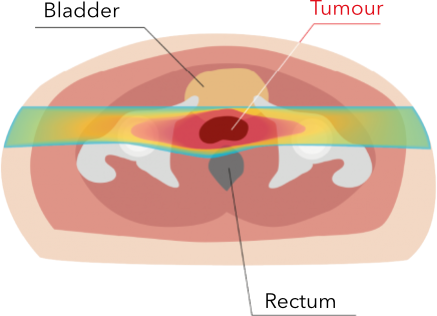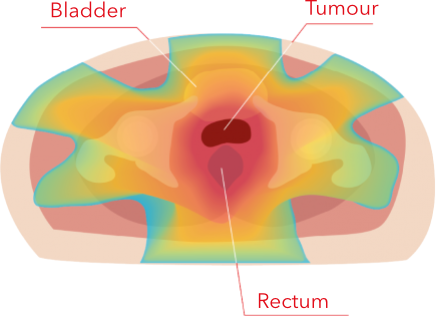15.12.2021
|
PROTON IRRADIATION Protons target the tumour directly, sparing healthy tissues and organs from unwanted effects. |
PHOTON IRRADIATION
|
The evolution of proton beam therapy was also highlighted – the introduction of pencil beam scanning for instance, which is more conformal and allows for intensity modulation, with sparing of the rectum in the cases of prostate cancer treatment.
–
Dr. Hoffman also highlighted that proton-based radiotherapy may reduce the risk of radiation-induced secondary cancers. It was also noted that robust optimisation in treatment planning can help to account for any proton radiation uncertainties.
–
Additionally, proton therapy delivers less radiation dose to the testicles. Thus, while conventional radiotherapy is associated with a decrease in testosterone levels after therapy, proton therapy is not. Citing a large case series from the University of Florida, Dr. Hoffman emphasised that proton radiation effectively controls prostate cancer with reasonable biochemical relapse rates.
–
In conclusion, she highlighted that proton radiation delivers a lower integral dose, compared to conventional radiotherapy. It has an acceptable toxicity profile and effectively controls disease. In conclusion, further research will help clarify the role this powerful technology will have in treating prostate cancer.
–
To find out if pencil-beam scanning proton therapy for cancer is appropriate for you or a loved one, please do not hesitate to contact us.
–
–
–
Full article: Read –>

 Photons irradiate the tumour as well as the healthy tissues and organs around it.
Photons irradiate the tumour as well as the healthy tissues and organs around it.